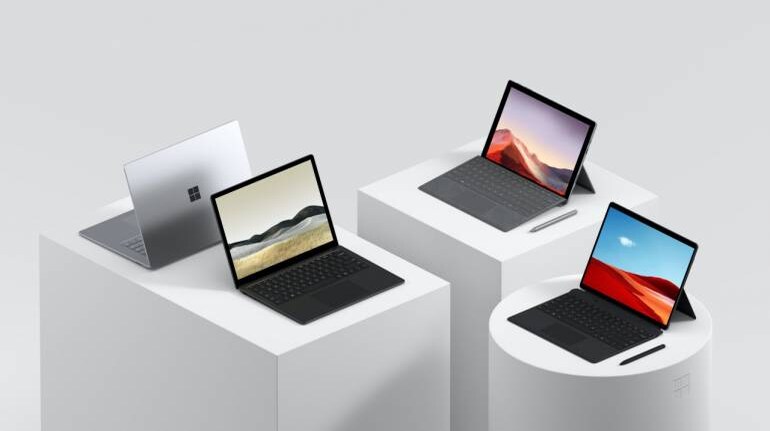With professionals working from home and children attending classes online, personal devices are now the must-have products
During the initial 45 days of the lockdown imposed to prevent the spread of novel coronavirus, or COVID-19, beginning March 25, Indians across the country could not purchase any product except essentials like medicines and grocery. With the partial lifting from May 4 onwards, electronic retailers and online platforms are seeing a revival in demand for personal electronic goods like computers, laptops and mobile phones.
Currently, a few stores are operational and e-commerce deliveries are permitted across India, except containment zones, leading to a resumption in sales. Sellers have attributed the rise in demand for electronic goods to the remote working and the e-learning push due to COVID-19 outbreak forcing people indoors.
A Snapdeal spokesperson told Moneycontrol that the increase in demand for IT products is due to users replicating at home some of the facilities available in the office like uninterrupted Wi-Fi. “The demand for laptops and tablets is also driven by students studying from home.”
At e-commerce portal Snapdeal, earphones and headphones are the top buys followed by laptop tables, home printers, and Wi-Fi routers. Mobile chargers, data cables and extension cords are also seeing high demand.
The spokesperson said that demand for laptops, tablets, mobiles, and tech accessories is up two times since the beginning of the lockdown. A majority of the demand is accruing from Punjab, Maharashtra, Rajasthan, Uttar Pradesh, Karnataka, and Tamil Nadu.
Due to the coronavirus outbreak, a nationwide lockdown was declared by Prime Minister Narendra Modi on March 24. This has now been extended with some lifting of restrictions till May 31. This meant that private officers were to allow work-from-home for a majority of the staff while schools/colleges had to switch to online classes.
Several salaried professionals did not have the necessary IT infrastructure to work-from-home or let the child take e-lessons. Hence, retailers are seeing a release of the pent-up demand for necessary products.
An Amazon India spokesperson said sellers on the platform have seen orders for consumer electronics, kitchen and home appliances, smart devices, laptops, phone accessories, apparel and more. “Work from home and online schooling enablers such as laptops, books, headphones and computer accessories continue to interest customers.”
What about the IT sector?Two sources from India's top IT firms told Moneycontrol that their companies had ordered additional laptops on account of the pandemic as they had to enable the work from home (WFH) option for employees.
Most IT firms enabled the WFH option within a matter of few weeks, whereas it took longer for business process management (BPM) firms due to privacy issues.
Unlike IT services, shifting to remote working is a lot more challenging for BPM firms that employ close to 1.1 million people. Most firms had struggled initially to enable remote working for employees due to client concerns.
Keshav R Murugesh, Global CEO of BPM firm WNS Global Services, said clients started granting approvals for business continuity as COVID-19 intensified.
The IT/ITeS sector employs about five million, with majority of this population currently working from home and 5-10 percent resuming office.
Since the COVID-19 outbreak, demand for remote working solutions increased. According to various reports, demand for laptops from Dell, HP and Acer have seen a spike.
Nishant Singh, Head of Data and Research Technology-Telecoms, GlobalData, said based on a survey of 4,181 global companies across sectors, 29 percent of them increased their IT budget for hardware such as laptops, desktops and other related accessories compared to last year.
According to Singh, this increase is at the back of remote working. “While employees were asked to work on their personal laptops initially, more often than not their configuration is not up to the mark. The issue was faced by most IT and tech companies. So, companies had to order more laptops.”
What about the supply chain impact?There is a supply chain issue as far as laptops and allied products are concerned. While manufacturers in China have resumed operations, the supply chain is yet to get back on track, due to which there could be shortages for laptops and its accessories.
Going forward, as the lockdown completely lifts over the next 60-90 days, there could also be a price increase to manage rising demand and lower production. Singh sees the possibility of a 10-15 percent price increase.
Are physical stores seeing demand too?Across India, electronic retailers are slowly opening standalone stores. As per government orders, malls have been ordered to stay shut till May 31 and no stores inside such establishments will be allowed to operate.
Mahesh Raamasamy, Business Head: Digital Products, Croma, told Moneycontrol that since the lockdown was partly lifted from May 4, customers have started walking into their stores.
“About 50 percent stores are operational. At our stores, demand for personal computers and tablets has been high,” he said. Croma has over 150 stores across more than 40 cities in India.
Raamasamy said the dual trends of WFH and learn from home are pushing pent-up demand for these devices. He said tablets are popular for e-learning because a majority of the applications and content are built for iOS and Android platforms.
“I am of the view that there is some kind of a ‘revenge buying’ that is happening, especially since customers were locked up at home and could not buy goods. Consumers are visiting the stores to buy because products like personal computers need assisted selling and onboarding,” he added.
However, as far as red zones are concerned, Raamaswamy said there is a gradual opening of stores. So far, the company has five stores operational out of 30 in Mumbai.
To avoid crowding at their retail stores, the Croma website is allowing people to book an appointment at the nearest operational store. Customers could also request a call-back to assist in making a purchase without visiting the store.















